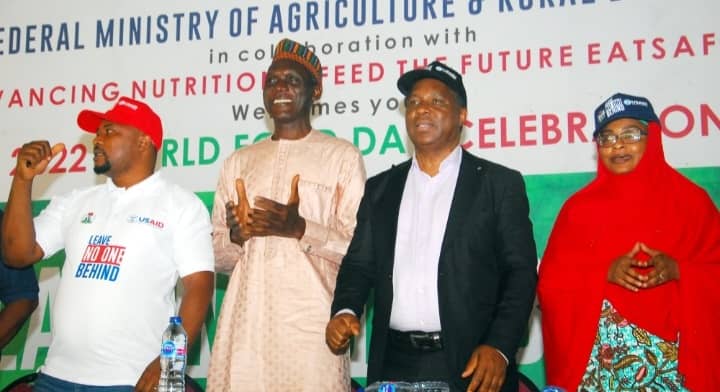News
Malnutrition: US allocates $9.5m to Kebbi, Bauchi, Sokoto States

The United States Agency for International Development (USAID) has allocated $9.5 million to tackle malnutrition in Kebbi, Bauchi and Sokoto states for two years.
This project according to the International Agency will initially focus on three states and will thereafter extend to other states in the country.

This was disclosed by the USAID Nigeria Director, Health Population and Nutrition, Paul McDermott at the USAID Advancing Nutrition project launch, in Abuja.
The USAID Advancing Nutrition is a flagship multisectoral nutrition project that seeks to improve the nutritional status and health of pupulations vulnerable to nutritional deficiencies.
McDermott said the project which establishes priorities for investment, policies and programmes, is targeted towards reducing the many burdens of malnutrition in children, adolescents and women.
“We recognize that no single sector can solve this problem in nutrition and that is why we have multisectoral strategy.
“It seeks to improve coordination at the federal and subnational level, increase collaboration and advance the synergy with the Government of Nigeria, the private sector and all the other key stakeholders.
“The activity will provide technical support, share information and knowledge, conduct research to improve nutrition outcomes in Bauchi, Kebbi and Sokoto states as well as the national level”, he said.
Also Speaking, Director of Country Initiatives, USAID Advancing Nutrition, Tina Lloren commended stateholders for their imput in the development of the project. She said their efforts assisted in ensuring that the project align with government priorities in the attainment of optimal nutrition for all citizens.
According to Lloren “Our programme in Nigeria is one of the largest and most complex portfolios within USAID advancing Nutrition and we are very excited to embark on this challenge to support the government of the Federal Republic of Nigeria together with our Government and Non Governmental counterparts.
“We believe that by strengthening the capacity of key multisectional actors, policies and systems to the provision of technical assistance, we will contribute to the improvement of diet, nutrition and ressillent of vulnerable populations in the three target states, Kebbi, Bauchi and Sokoto and throughout the nation”.
Representatives of United Nations Children Fund (UNICEF), Oluwaseun Okediran, noted that Nigeria has the highest burden of malnutrition in Africa. She however commended the federal government for changing the narrative by increasing investment in nutrition.
She further stressed that collective efforts are required to change the health and nutrition status in Nigeria.
The Minister of State for Budget and National Planning, Clem Agba revealed that Nigeria Demographic and Health Survey (NDHS) 2018 estimates that 2.5 million children under the age of 5 are suffering from severe acute malnutrition.
The Minister who was represented by the Director, Social Development Department, Dr Sanjo Faniran said nutrition is the basis for human capital development and stressed the need for a long term intervention that will address it.
The Minister said “It is the desire of the government that partners align themselves with the priorities of all sectors as ecapstulated in the national development plan 2021 – 2025, so that implementation is consistent with policies and plans accross all relevant sectors. This will result in better coordination and faster achievement of results”.
Representatives from Kebbi, Bauchi and Sokoto states who were present at the launch of the project commended USAID for the intervention.
The Commissioner for Budget and Economic Planning Kebbi State, Abba Sani Kalgo said the status of nutrition in the state is poor and expressed optimism that the project will address it.
“The Advocacy team came to Kebbi state, so we are already on course to fully implement. We are already working together with the development partners.
“We see the indices, we know they are not too good. We know that with programmes like this and the efforts of the state government, we are going to improve nutrition in not too distant future”.

























